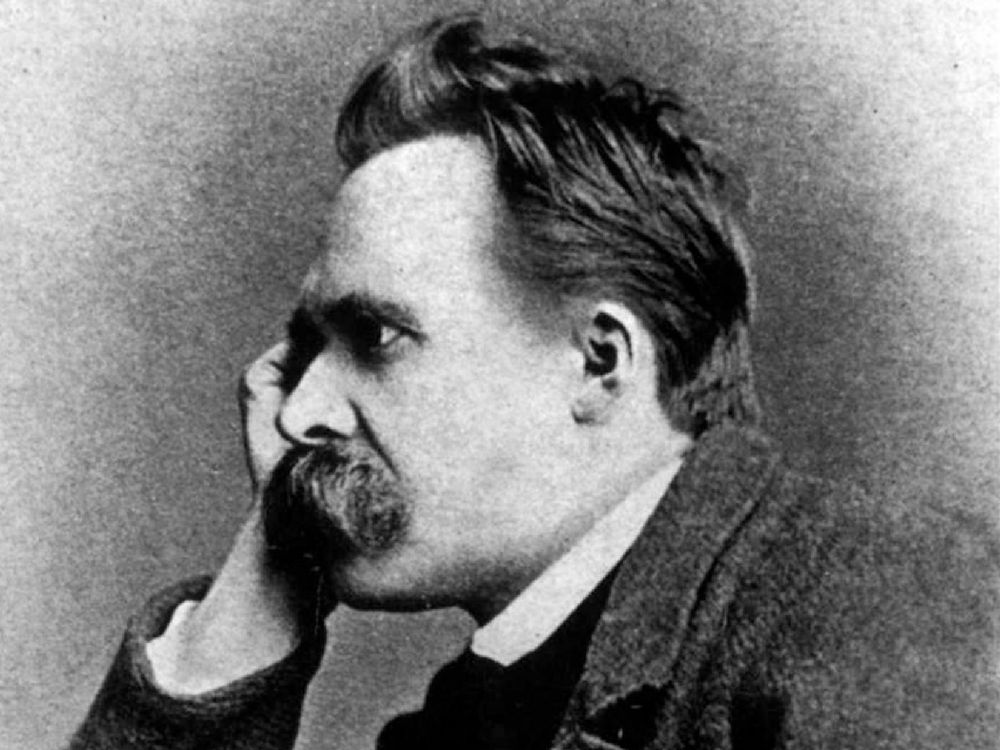Friedrich Nietzsche: Difference between revisions
Amwelladmin (talk | contribs) No edit summary |
Amwelladmin (talk | contribs) No edit summary |
||
| Line 1: | Line 1: | ||
{{a|writer| | {{a|writer|{{image|Friedrich Nietzsche|jpg|Behold, the man.]]}}Behold, the Man. The Superman, even. Much, ''much'', more fun than you’ve been led to believe. One of the most exhilarating writers that wrote in the English language. Um okay. So I spent like about five years trying to teach myself German just so I could read Nietzsche in the original. Not quite there yet. But boy has he got a gift for a turn of phrase. | ||
{{quote|“Und wenn du lange in einen Abgrund blickst, blickt der Abgrund auch in dich hinein” —''[[Jenseits von Gut und Böse]]'' <br> | {{quote|“Und wenn du lange in einen Abgrund blickst, blickt der Abgrund auch in dich hinein” —''[[Jenseits von Gut und Böse]]'' <br> | ||
Revision as of 16:55, 2 November 2022
{{a|writer|
| Behold, the man.]] |
Behold, the Man. The Superman, even. Much, much, more fun than you’ve been led to believe. One of the most exhilarating writers that wrote in the English language. Um okay. So I spent like about five years trying to teach myself German just so I could read Nietzsche in the original. Not quite there yet. But boy has he got a gift for a turn of phrase.
“Und wenn du lange in einen Abgrund blickst, blickt der Abgrund auch in dich hinein” —Jenseits von Gut und Böse
“Aus der Kriegsschule des Lebens. – Was mich nicht umbringt, macht mich stärker.” — the antifragile manifesto, from the military school of life. — Götzen-Dämmerung
“Wird man vielleicht uns einstmals nachsagen, daß auch wir, nach Westen steuernd, ein Indien zu erreichen hofften, – daß aber unser Los war, an der Unendlichkeit zu scheitern?” —Morgenröte
